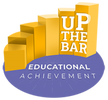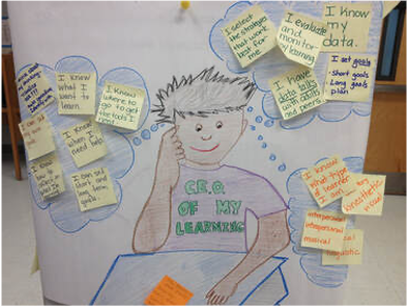Student Ownership Leads to Student Achievement
An Academic Approach to Social-Emotional Learning
Day 1 – Growth Mindset
Developing a growth mindset means that learners will be prepared to take academic risks, learn from their mistakes, and be comfortable stepping out of their comfort zones. Teachers will clearly understand what is growth mindset, how its development increases student confidence and perseverance, and how to implement research-based methods to instill a growth mindset in their students.
Learning Outcomes
Day 2 - Intrinsic Motivation
When students engage in tasks that promote mastery, autonomy, and purpose, they become considerably more invested in the learning process. Teachers will learn how to integrate the six Cs of intrinsic motivation (choice, challenge, control, collaboration, consequences, and constructed meaning), which creates a positive culture that values learning for its own sake.
Learning outcomes:
Day 3 - Self-Regulated Learning
When students know how to set their own goals, apply learning strategies they have been taught, and then carefully evaluate/adapt their outcomes, then they have acquired a continuous improvement model that will serve them well for the rest of their lives. Teachers will learn how to guide students to become self-regulated
learners through a process of metacognitive awareness, strategic planning, and thoughtful engagement.
Learning Outcomes:
Administrator Overview
As teachers learn how to transform their learning environments to optimize student growth and learning, it is critical that administrators understand the process so that they may support their teachers’ and students’ efforts. It is highly recommended that administrators receive a half day overview training that will underscore why and how the initiative promotes student achievement, and the role that the administrators play in fostering a schoolwide culture and climate that supports growth mindset, intrinsic motivation, and self-regulated learning.
Family Connection
Moreover, to authentically engage in these transformative practices, a family workshop that is designed for students and their families would build a bridge into the community, so that student support is aligned from school to home. This kind of wrap-around component to the initiative will insure that students are being supported on all sides. The greater the support, the stronger the students.
Developing a growth mindset means that learners will be prepared to take academic risks, learn from their mistakes, and be comfortable stepping out of their comfort zones. Teachers will clearly understand what is growth mindset, how its development increases student confidence and perseverance, and how to implement research-based methods to instill a growth mindset in their students.
Learning Outcomes
- Differentiate growth vs fixed mindset
- How productive struggle promotes growth
- Mindset Mondays to Feedback Fridays
- Anything worth having is worth working for
- Goal setting through data analysis
- Tools for fostering a growth mindset culture and climate
Day 2 - Intrinsic Motivation
When students engage in tasks that promote mastery, autonomy, and purpose, they become considerably more invested in the learning process. Teachers will learn how to integrate the six Cs of intrinsic motivation (choice, challenge, control, collaboration, consequences, and constructed meaning), which creates a positive culture that values learning for its own sake.
Learning outcomes:
- Differentiate between intrinsic and extrinsic motivation
- Value of autonomy, mastery and purpose
- Six Cs of Intrinsic Motivation
- Student ownership of the learning process
- Tracking personal progress through data analysis
- Tools for cultivating an intrinsically motivated culture and climate
Day 3 - Self-Regulated Learning
When students know how to set their own goals, apply learning strategies they have been taught, and then carefully evaluate/adapt their outcomes, then they have acquired a continuous improvement model that will serve them well for the rest of their lives. Teachers will learn how to guide students to become self-regulated
learners through a process of metacognitive awareness, strategic planning, and thoughtful engagement.
Learning Outcomes:
- Metacognitive awareness
- Value of knowing how to learn
- Continuous improvement cycle of the self-regulated learner
- Critical thinking and reflection
- Using data analysis to inform learning opportunities
- Tools for developing a self-regulated learning climate and culture
Administrator Overview
As teachers learn how to transform their learning environments to optimize student growth and learning, it is critical that administrators understand the process so that they may support their teachers’ and students’ efforts. It is highly recommended that administrators receive a half day overview training that will underscore why and how the initiative promotes student achievement, and the role that the administrators play in fostering a schoolwide culture and climate that supports growth mindset, intrinsic motivation, and self-regulated learning.
Family Connection
Moreover, to authentically engage in these transformative practices, a family workshop that is designed for students and their families would build a bridge into the community, so that student support is aligned from school to home. This kind of wrap-around component to the initiative will insure that students are being supported on all sides. The greater the support, the stronger the students.


